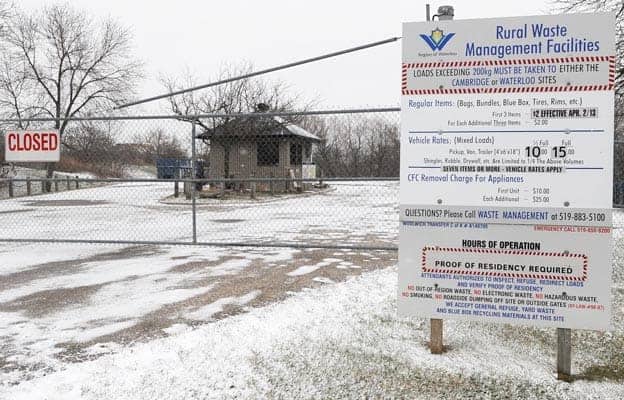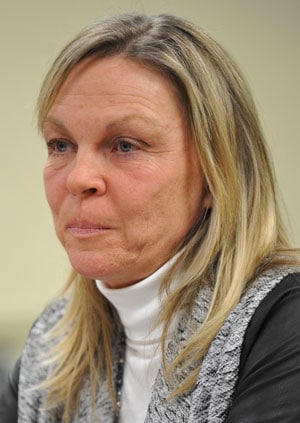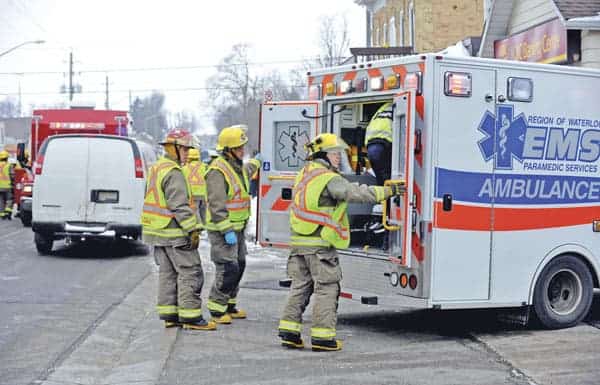As the drop-dead date for the rural transfer stations grows near, three of the four township mayors are plotting ways to keep their facilities open.
Sandy Shantz of Woolwich, Joe Nowak of Wellesley and North Dumfries Mayor Sue Foxton met last week to put together a motion on the matter to be presented at the region’s budget approval meeting March 4.
Wilmot’s Lee Armstrong is the only rural mayor in favour of closing the stations.
“What I’m hoping to do is to convince the region to keep the (Elmira) transfer station open for at least one more year to give it a good chance to really look at the viability of it, probably with an increased cost,” Shantz said. “I am working with the mayors from the other townships and we’re going to put our heads together to see what we can come up with.”
Woolwich council, in particular, has been steadfast in its condemnation of the region’s plan to shutter the stations, having urged for the Elmira site to remain open past the scheduled closure date of March 31 to keep alive the possibility of a deal with a private operator.
But region waste management staff haven’t budged, arguing the cost – some $414,000 annually, with an additional $7 million expected over the next decade in infrastructure improvements – is too onerous considering curbside pickup is equal across the region, unlike in decades when door-to-door pickup lagged in rural communities.
One problem is the rural stations, located in Elmira, Linwood, Ayr and Wilmot, don’t have weigh scales, which makes cost recovery very difficult, Region of Waterloo waste management director Jon Arsenault said.
“Those facilities are meant for residential waste, not for business waste,” he said. “And because it is a piece rate and you charge by the load and it’s somewhat more subjective that way as opposed to the scales, the cost recovery is generally less at the rural transfer stations for the amount of weight. So we’ve identified that when 100 kilograms comes in, the price, the fee charged on a vehicle is typically quite a bit less at the rural facilities than the Cambridge and Waterloo facilities because we don’t have the ability to scale.”
But that could be fixed, in part, by higher fees, Shantz said.
“I heard from a number of people while I was campaigning say they would be willing to pay more to keep it open,” she said, noting regional staff’s comments last week that increasing the minimum tipping (or gate) fee from $2 to $10 could cut the operating loss in half. “I have heard people say they would be willing to pay $10. So whether we decide to go with (in our motion) a fee of $5 or even $10 for the convenience, that is still to be determined.”
She also suggested the motion will look at keeping the facility open more frequently during spring and fall yard cleanup months when demand is at its peak.
Currently, the stations are open every other Saturday.
Regional council voted to increase the minimum drop-off fees at the Cambridge and Waterloo facilities from $2 to $5 last week, while also raising the tipping fees from $74 to $75 per tonne.
The decision takes effect July 1 and is expected to bring in an additional $12,500 in revenue – a relatively small number because most people use the facilities to dump garbage well in excess of the minimum weight level of roughly 75 kilograms, Arsenault said.









